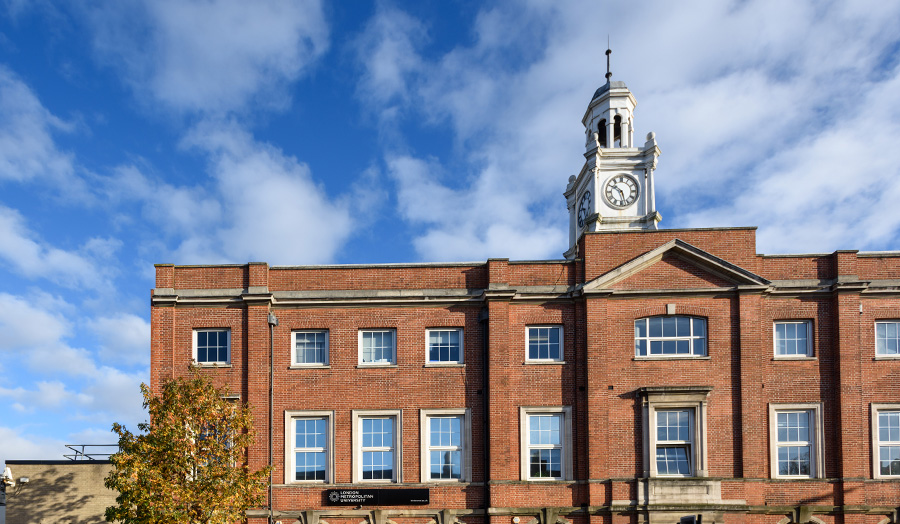University given maximum award from the Office for Students to create courses that address critical nursing shortages in London.
Date: 15 December 2022
London Metropolitan University has been awarded £5.8 million by the Office for Students (OfS) to support the creation of a new nursing subject area within its School of Human Sciences.
The award will enable the University to refurbish areas of its Holloway Campus to create a modern, flexible, and sustainable learning space for its nursing students. Investment in technical infrastructure will allow students learning at work and on placements to participate in synchronous learning and teaching through lecture capture.
Funding through the OfS’ competitive bidding process has been provided to 100 universities, colleges, and other higher education providers. Of these, only 47 - including London Met - were awarded the maximum amount of £5.8 million per provider. The OfS received 203 bids requesting a total of £830 million.
Meeting the needs of London
Health Think Tank the King’s Fund, recently reported that there are now 46,000 vacant nursing posts in the UK, a record high and called for the development of a ‘sustainable supply of nurses into the NHS,’ among other interventions, to address the crisis. By creating the Division of Nursing London Met is playing its part in helping to tackle the staffing crisis in healthcare.
London Met’s will welcome its first cohort of 30 Nursing (Adult) BSc (Hons) students in September 2023. The success of our bid aligns with our plans to adapt the estate and rapidly grow our intake of 30 nursing students in 2023 to over 400 in 2028, providing the capital with 1,500 new healthcare employees.
The funding will also allow the University to extend and further meet demand in existing allied health areas such as physiotherapy and dietetics, and to develop employer focused apprenticeships at Levels 4 and 5. The Centre will also enable the University to deliver a suite of short courses taught face to face and online through flexible delivery.
Eugene McCrossan, Chief Operating Officer of London Met, said: “As a University, we are committed to giving back to our community. Nurses are the backbone of the NHS and there is a critical shortage across the country, and especially in London. Our new Nursing subject area will help provide highly skilled graduates to address this need.
“Receiving the maximum possible funding will enable us to achieve our vision of creating a nursing division with state-of-the-art teaching spaces which harness the latest diagnostic simulation systems to ensure our students have the best possible learning experience.”
London Met's School of Human Sciences offers a wide range of courses in subjects including biosciences, chemical and pharmaceutical sciences, health sciences (including sports sciences, sports therapy, physiotherapy, dietetics and nutrition).
The School’s Head, Professor Elizabeth Opara, commented: “We are delighted to be expanding the School’s portfolio to include Nursing. Our nursing students will find a diverse and vibrant School with some of the best facilities available. The subject mix we offer will really opens up possibilities for inter-disciplinary working.”
Shortly after joining the University, Dr Julie MacLaren, who will lead the Division of Nursing, spoke of her excitement about launching these news courses: “It’s a brilliant time to come to London Met because of the amazing plans we’ve got for the new skills and simulation suite on the second floor of the Learning Centre.
“We’re planning for our programme to have much more of a community focus than at some other universities. We’re interested in things like partnerships with GP federations, in how care gets delivered in the community, in care homes, how care gets delivered in workplaces in occupational health departments, as well as ensuring those core experiences that are so essential to nursing.”
Government support
The award for London Met was announced by the OfS on 8 December as part of a £432 million funding round to boost higher education facilities and equipment. The funding, allocated for the financial years from 2022-23 to 2024-25, consists of £399 million awarded through a bidding exercise and an allocation of £11 million each year to be distributed based on a formula.
Successful capital bids demonstrated value for money, effective project management and environmental sustainability. Bids also demonstrated how they met one or more priority categories. These were:
- Category one: High-cost subjects of strategic importance. These subjects include laboratory-based subjects in science, technology and engineering, and healthcare disciplines in medicine, dentistry, nursing, midwifery and allied health professions, veterinary science, and archaeology
- Category two: Enhancement of graduate employability and skills needs of employers and industry and therefore local and regional economies, in supporting technical provision at Levels 4 and 5
- Category three: Part-time and other forms of flexible provision to include the development of higher education short course study.
Susan Lapworth, chief executive of the OfS, said: “Investing in modern buildings and innovative equipment will help universities and colleges in England prepare students for their future careers. Modern laboratories and state of the art technology mean students learn with the best facilities. Our investment will also increase the provision of short courses that offer flexibility to boost the skills of the workforce.
“Competition for funding was strong, with high quality applications from across the sector. The OfS-funded capital projects will ensure current and future students have a positive experience while studying expensive-to-deliver subjects that are strategically important to society. Taxpayers will feel these benefits too, as our investment will boost local and regional economies and support environmental sustainability.”

